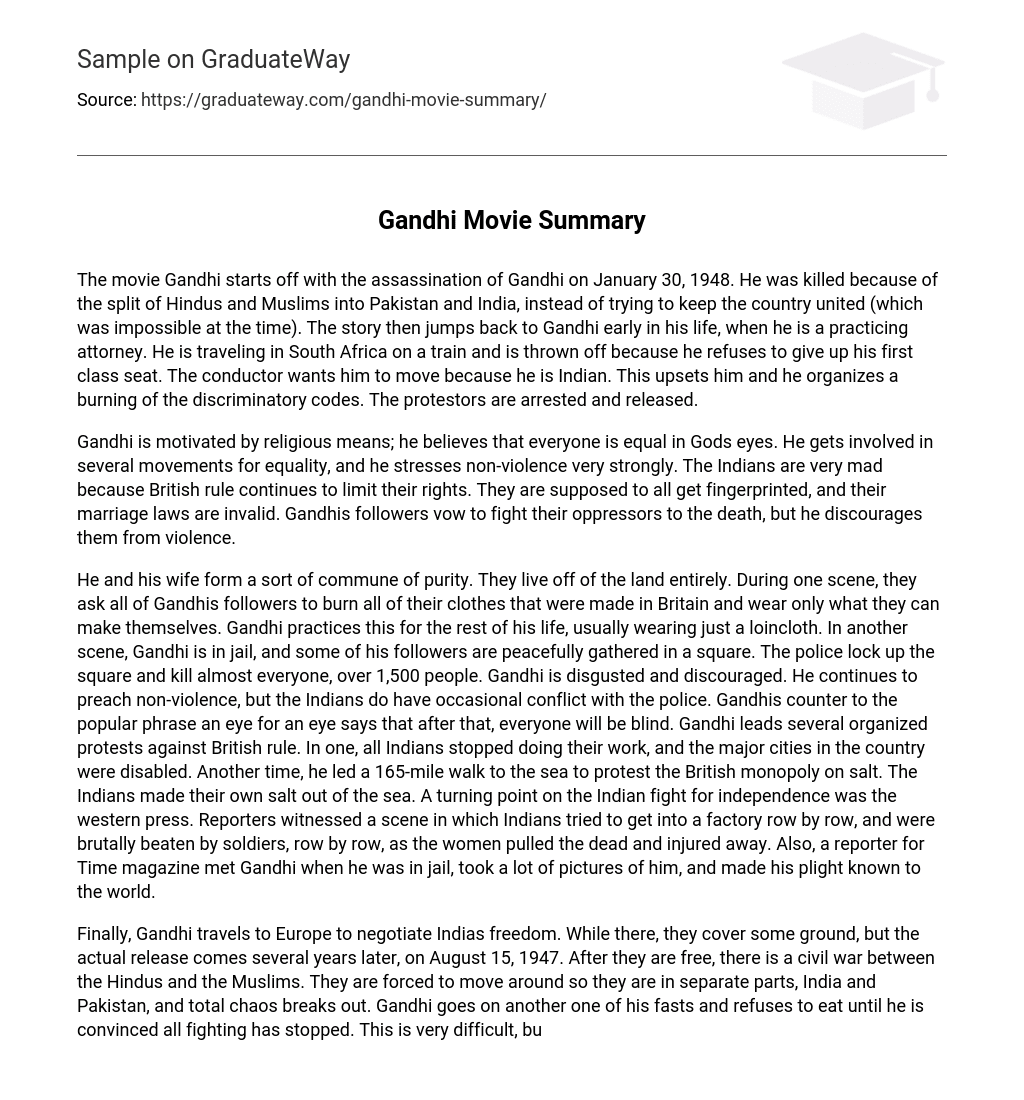The movie “Gandhi” starts with the tragic occurrence of Gandhi’s murder on January 30, 1948, which took place because of the separation between Hindus and Muslims into Pakistan and India. The story then shifts to Gandhi’s beginnings as a lawyer in South Africa, where he faces discrimination on a train due to his Indian background. When he refuses to give up his first-class seat, it inspires him to lead a protest by burning discriminatory laws. As a result, the demonstrators are arrested but ultimately released.
Gandhi is driven by his religious beliefs, advocating for equality in the eyes of God. He actively participates in various equality movements, emphasising the importance of non-violence. The Indian people are infuriated by the ongoing restrictions imposed by British rule, such as mandatory fingerprinting and invalidated marriage laws. While his followers pledge to fight their oppressors with their lives, Gandhi dissuades them from resorting to violence.
Gandhi and his wife create a communal lifestyle based on purity, relying solely on the land for their sustenance. In a particular incident, they call upon all of Gandhi’s followers to dispose of any clothing made in Britain and exclusively wear garments that they create themselves. Gandhi persists in this practice throughout his life, often donning only a loincloth.
In jail, Gandhi witnesses a horrific event where the police imprison a square full of his followers who were peacefully gathered. Tragically, over 1,500 people are killed. Witnessing this atrocity deeply disturbs and demoralizes Gandhi. Despite his disgust, he continues to advocate for non-violence. However, there are occasional conflicts between the Indians and the police. In response to the popular notion of “an eye for an eye,” Gandhi aptly points out that following such a path will ultimately result in everyone being blind. Determined to fight against British rule, Gandhi organizes numerous protests. In one instance, he urges all Indians to cease their work, effectively paralyzing major cities across the nation. In another demonstration, Gandhi leads a 165-mile march to the sea in protest of the British monopoly on salt.
The Indians produced salt from the sea, which played a significant role in their struggle for independence. The western press contributed to a pivotal moment by documenting an incident where Indian individuals attempted to enter a factory in a disciplined manner, only to be mercilessly attacked by soldiers. As this unfolded, women tended to the deceased and wounded. Moreover, a reporter from Time magazine visited Gandhi in prison, capturing numerous photographs while raising awareness of his situation to the global community.
Finally, Gandhi travels to Europe to negotiate India’s freedom. During their time there, progress is made, but the official release does not occur until August 15, 1947. After India becomes free, a civil war erupts between Hindus and Muslims. This results in the division of the country, with India and Pakistan emerging as separate nations, leading to widespread chaos. In an effort to end the violence, Gandhi embarks on another hunger strike, vowing not to eat until all fighting ceases. Despite the tremendous difficulty, his resolve prevails and peace is eventually restored. Sadly, shortly thereafter, Gandhi is assassinated.





